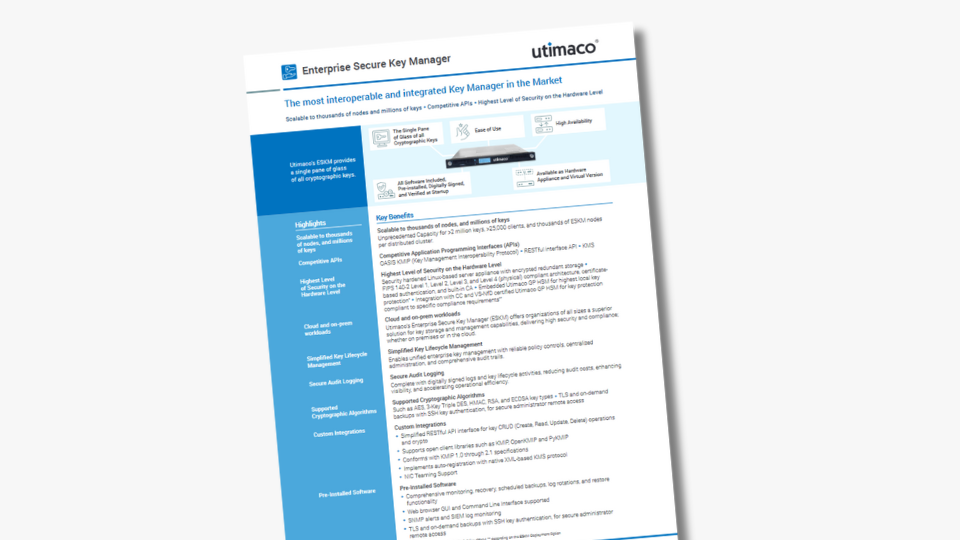Complying with the Digital Operational Resilience Act (DORA) is a smart move, even for organizations outside the financial services industry.
Mandatory for utilization since the beginning of 2025, the Digital Operational Resilience Act (DORA) provides rules and guidelines attempting to ensure operational resilience of financial institutions and related entities in the face of digital disruptions.
In this blog post, we will introduce you to the basic principles of DORA compliance and demonstrate why it is the ideal template for organizations in all industries to elevate the security of their digital infrastructure.
DORA Compliance in a Nutshell
The What:
The Digital Operational Resilience Act is a legislative framework aiming to bolster cybersecurity and operational resilience within the financial sector. It imposes obligations on financial institutions (such as credit and payment institutions or investment firms), market infrastructures (for example, electronic money institutions, trading venues or credit rating service providers), and digital service providers (like data reporting service providers).
The When:
DORA came into force on January 16th, 2023, and became applicable on January 17th, 2025.
The How:
By providing rules and guidelines for data protection, detection, containment, recovery, and repair capabilities against Information and Communications Technology (ICT)-related incidents, it signals a new era of heightened cybersecurity standards to mitigate digital risks and ensure the stability of financial systems.
DORA as a Gamechanger for Elevated Security in all Organizations
DORA legislation seeks to enhance the cybersecurity of financial institutions and bolster their ability to withstand cyber-attacks or other IT-related disruptions.
As the Financial Industry is one of the most regulated ones, having to fulfill various legal and compliance requirements on a global as well as country-specific scale, organizations from other industries can use DORA as a great reference for how to elevate cybersecurity for their digital infrastructure.
Why you should leverage DORA, regardless of your industry
When investigating the details of the DORA principles, their background and how they can be implemented, we understood that they make a great template for every organization seeking to strengthen the security of their digital infrastructure.
DORA provides a robust framework how to strengthen the digital resilience of your organization to withstand, respond to, and recover from digital disruptions. This includes ensuring that critical operations can continue even during cyberattacks, IT failures, or other digital incidents.
The top 5 reasons why you should utilize DORA for your organization
1. ICT Risk Management Framework
Implementing a comprehensive ICT (Information and Communication Technology) risk management framework including identifying and assessing ICT risks, implementing controls to mitigate risks as well as regularly testing and updating risk management processes ensures that organizations are proactive in managing potential vulnerabilities.
2. Monitoring and Incident Reporting
The requirement for continuous monitoring and regular testing of ICT systems ensures resilience as this enables you to detect and address issues proactively.
3. Cybersecurity Measures and 3rd party risk management
In order to manage risks associated with 3rd party providers DORA requires organizations to conduct due diligence when selecting third-party providers, monitor and assess the performance and resilience of these providers, and ensure contractual agreements for operational resilience and compliance with DORA.
This is particularly important when relying on cloud services and other external providers and effectively supports protecting sensitive data and systems from unauthorized access and helps to stay updated on emerging threats and adapt defenses accordingly.
4. Governance and Accountability
DORA emphasizes the need for strong governance structures, including overseeing ICT risk management strategies, allocating sufficient resources to resilience efforts and ensuring a culture of operational resilience throughout the organization.
5. Infrastructure Resilience
DORA ensures that organizations are prepared in terms of a resilient infrastructure by requiring them to develop contingency plans, ensure business continuity during prolonged disruptions and coordinate with regulators and stakeholders during crises.
By utilizing the basic principles of DORA, you can make sure to be prepared for today’s and tomorrow’s threats.
The Role of Data Encryption for DORA Compliance
Reliable encryption of data preventing unauthorized access, protecting against data misuse and loss, is one of the basic techniques mandated by the DORA regulations across various articles.
File and Folder Encryption from Utimaco
Utimaco is a leading provider of data security solutions, including data encryption with LAN Crypt File and Folder Encryption. To meet the broadest range of use cases, the solution is offered as an on-premises solution, in the cloud with File and Folder Encryption as a Service, and LAN Crypt 2Go for securely sharing files externally.
Utimaco's Enterprise Secure Key Manager becomes the heart of your key management strategy by providing a single pane of glass for all cryptographic keys, whether on premises or in the cloud.








